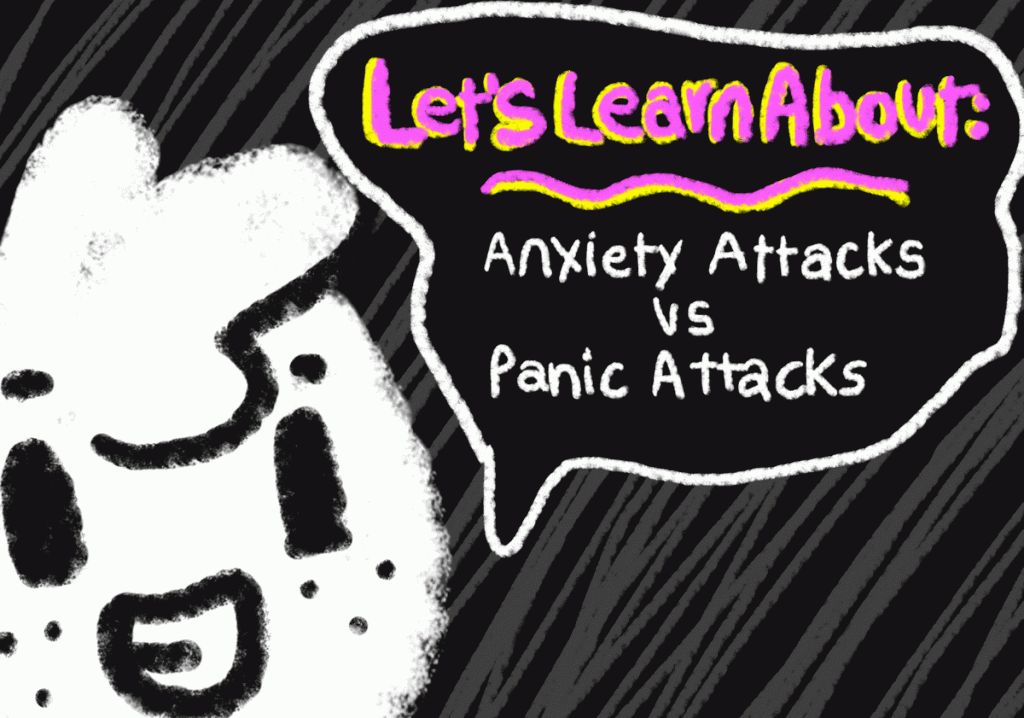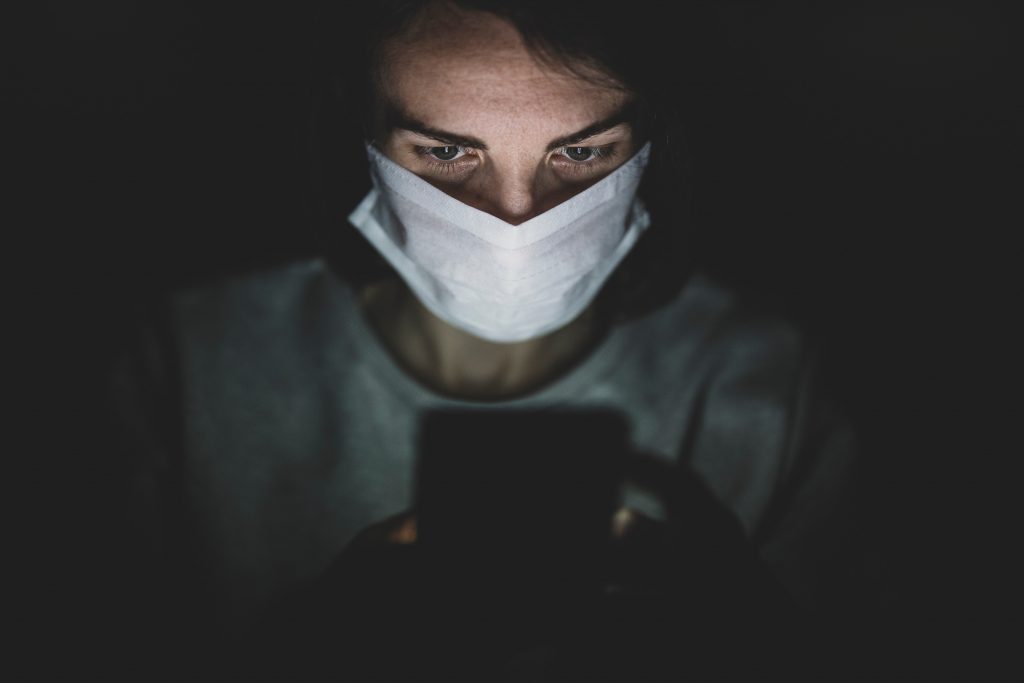Anxiety Attack VS Panic Attack – What’s The Difference?

Hi there Psych2Goers, this is a disclaimer that this article is for informative purposes only and is not intended to serve as mental health advice or to diagnose any condition. Please reach out to a qualified mental health professional or healthcare provider if you are struggling.
“Anxiety attacks” and “panic attacks” are two terms that get thrown around a lot. They’re usually jumbled together and are often used interchangeably. However, there’s actually a huge difference between them that is important to understand. To better take a look into what these differences are, in this article, we’ll be comparing and contrasting the two conditions.

What Is an Anxiety Attack?
Anxiety is the fight or flight feeling coming from a perceived threat. You generally feel anxious in times of stress. This can be related to school, work, or other areas of your personal life; usually, out of fear that something bad may happen. Most people experiencing anxiety feel an intense worry, have difficulties sleeping, or have stomach issues. When something stressful in your life occurs, these symptoms can come on rather intensely. When in an attack, you may feel intense anxiety symptoms from a period of minutes, to weeks. These symptoms are usually identifiable and can vary greatly in intensity (Ankrom 2020).

What Is a Panic Attack?
Panic attacks are different from anxiety in the sense that they are almost always abrupt and can seemingly come from nowhere. While you may feel many anxiety symptoms, you may also feel some other dramatic effects, such as derealization; the feeling that nothing is real. These attacks tend to be extremely intense and may not be immediately identifiable. The unpleasant feelings themselves are frightening to the point that you become afraid of experiencing them again. Panic attacks can be expected in certain situations, especially in relation to certain phobias , or they can have no apparent cause (unexpected form). They are usually associated with symptoms of a panic disorder (NIMH 2016).

The Symptoms are Different:
Anxiety attacks tend to consist of:
- Restlessness
- Excessive worry
- Inability to concentrate
- Nausea
- Chest pain
- Difficulty breathing
(Source: Leonard 2021)
Panic attacks tend to consist of:
- Feelings that you’re losing control
- Fear of death
- Dizziness
- Nausea
- Chest pain
- Depersonalization
- Derealization
(Source: Mayo Clinic 2019)

Panic Attacks are Sudden While Anxiety Builds Up
Anxiety is usually related to anticipation; you fear that something is going to happen. Situations like public speaking in which there’s much room for error can cause intense feelings of anxiety that snowball as you get closer to the event. Panic attacks, on the other hand, often comes out of nowhere. When you are in a stressful time in your life, you may gradually feel anxiety build up as you overthink your situation. In contrast, you may be shopping at a store when a panic attack suddenly pops up. Panic attacks tend to be associated with trauma and lead to an immediate shutdown instead of the gradual buildup anxiety takes (Ankrom 2020).

They are Both Activated Differently
Anxiety attacks tend to follow the signs of an anxiety disorder whereas panic attacks follow panic disorders. A panic attack generally is the result of trauma allowing it to strike at any moment; there doesn’t need to be any real danger for it to be activated. Anxiety attacks are usually triggered by a cause. Since panic attacks come on so suddenly, many people experiencing them tend to think they’re experiencing symptoms of something else, such as a heart attack (Leonard 2021).

Panic Attacks and Anxiety Attacks Differ In Intensity
Panic attacks are almost always intense. The feelings are so overwhelming to the point where it is impossible to do anything. The physical symptoms are stronger than what is normally found in an anxiety attack and are highly disruptive. While anxiety often comes with physical symptoms, the psychological ones tend to be stronger. Anxiety attacks vary in intensity, but can be persistent for extended period of time, whereas panic attacks tend to only last a few minutes. In fact, you may actually experience both a panic and anxiety attack at the same time. For instance, you may be extremely anxious about a public speaking event and fall into a panic attack when it actually happens (Ankrom 2020).

While anxiety attacks and panic attacks have much overlap between them, they are still quite different. However, they both are very unpleasant and can be disruptive towards your life. If you feel that your panic and/or anxiety attacks are degrading your quality of life, you should reach out to a mental health professional. Getting in touch with the right person can get you back on track. What are your thoughts about the matter? What have you learned? Any other difference that we missed? Let us know in the comments.

References:
- Ankrom, S. (2020, November 7). What Is the Difference Between Panic and Anxiety Attacks? Verywell Mind. www.verywellmind.com/anxiety-attacks-versus-panic-attacks-2584396
- Brito, J. (2019, September 30). What’s the Difference Between a Panic Attack and an Anxiety Attack? Healthline. www.healthline.com/health/panic-attack-vs-anxiety-attack#symptoms
- Leonard, J. (2021, January 21). How do you know if you’re having a panic or anxiety attack? MedicalNewsToday. www.medicalnewstoday.com/articles/321798#signs-and-symptoms
- Mayo Clinic. (2018, May 4). Panic attacks and panic disorder – Symptoms and causes. www.mayoclinic.org/diseases-conditions/panic-attacks/symptoms-causes/syc-20376021
- NIMH. (2016). NIMH » Panic Disorder: When Fear Overwhelms. National Institute of Mental Health. www.nimh.nih.gov/health/publications/panic-disorder-when-fear-overwhelms/index.shtml





Responses